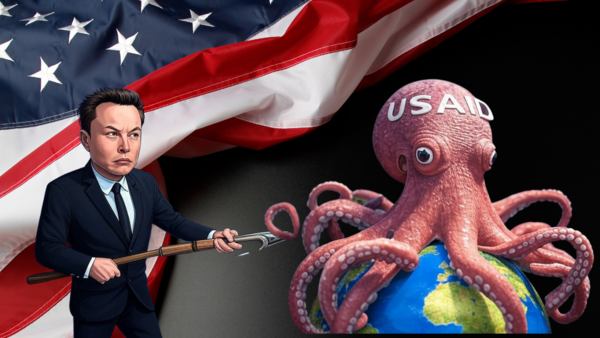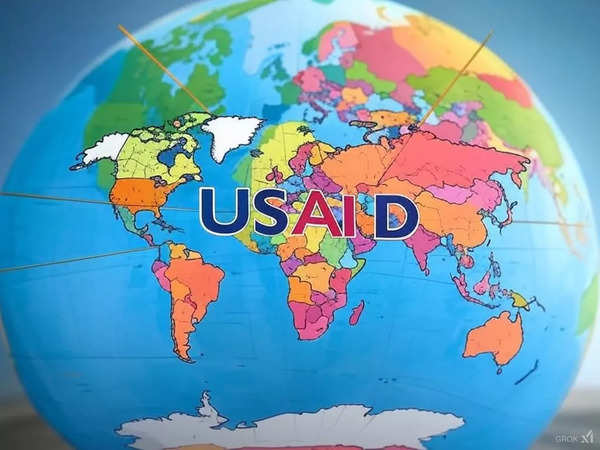The United States Agency for International Development (USAID), established by former President John F. Kennedy in 1961, has long been a cornerstone of American foreign aid policy. Its creation was intended to counter Soviet influence during the Cold War, providing a more agile and focused approach to international development than the traditional State Department channels. While the Soviet Union has since collapsed, USAID continues to operate globally, supporting initiatives ranging from humanitarian aid to economic development. However, recent events and historical controversies have reignited debates about the agency’s role, effectiveness, and underlying political motives.
Recent Criticism of USAID Spending
USAID has recently come under intense scrutiny for what some critics describe as wasteful spending of American taxpayer dollars. High-profile figures, including political leaders and tech billionaire Elon Musk, have voiced strong opposition to specific USAID-funded projects. Among the most controversial expenditures are:
- $1.5 million allocated for Diversity, Equity, and Inclusion (DEI) programs in Serbia, aiming to promote workplace inclusivity.
- $70,000 for a DEI-themed musical in Ireland, intended to foster cultural awareness and social cohesion.
- $47,000 for a transgender opera in Colombia, designed to support LGBTQ+ artistic expression.
- $32,000 for a transgender comic book in Peru, aimed at raising awareness about gender identity issues.
Speaking to reporters, White House secretary Karoline Leavitt criticized these programs, stating, “If you look at the waste and abuse that has run through USAID over the past several years, these are some of the insane priorities that the organization has been spending money on. I don’t know about you, but as an American taxpayer, I don’t want my dollars going towards this crap.”
Elon Musk added to the controversy by calling USAID a “criminal organization” on his social media platform X, suggesting that it should be shut down entirely. His comments followed President Donald Trump’s appointment of Senator Marco Rubio as the acting administrator of USAID, effectively placing the agency under tighter State Department control.
Political Fallout and Administrative Changes

These developments have sparked significant political backlash. Representative Ilhan Omar criticized the administration’s moves, warning of a potential “constitutional crisis.” She expressed concern over the consolidation of power and the influence of unelected individuals like Musk in shaping foreign aid policy. “Elon Musk, an unelected billionaire, is wasting no time in abusing the influence he bought with $290 million by eliminating USAID, a program that has saved millions of lives around the world,” Omar stated.
Further complicating matters, around 60 senior USAID staff members were recently placed on leave following allegations that they attempted to bypass an executive order on foreign aid. This internal upheaval has raised questions about the agency’s governance and accountability mechanisms.
Historical Controversies: Covert Operations and Political Influence
The recent criticism of USAID is not without historical precedent. The agency has faced allegations of covert activities and political interference in several countries over the years. Here are some notable examples:
Cuba (2009-2012): ZunZuneo Project
Between 2009 and 2012, the United States Agency for International Development (USAID) covertly developed “ZunZuneo,” a social media platform designed to mimic Twitter, targeting Cuban youth. The platform initially focused on harmless, apolitical content like sports, music, and weather updates to build a broad user base. USAID’s long-term strategy was to subtly introduce political messages that could foster dissent against the Cuban government. To obscure the project’s true origins, USAID used offshore bank accounts, front companies, and foreign contractors, with operations managed from countries like Spain and Ireland. The project was abruptly discontinued in 2012 when funding ran out, leaving many Cuban users unaware of its connection to the US government. This revelation in 2014 sparked international criticism and raised questions about the ethics of covert digital influence campaigns.
Bolivia (2008-2013):Support for Opposition Groups
In 2008, USAID was accused of financially supporting opposition groups aiming to undermine the administration of Bolivian President Evo Morales. The Bolivian government alleged that USAID funded civil society organizations and regional movements, particularly in the resource-rich eastern provinces, which were pushing for greater autonomy. This was perceived as an attempt to destabilize Morales’ government, which pursued policies contrary to US interests, including the nationalization of key industries. The tension escalated after USAID was implicated in fostering political division, leading President Morales to expel the agency from Bolivia in 2013. Morales accused USAID of conspiring against Bolivia’s sovereignty, a move that was part of a broader regional trend of Latin American leaders rejecting foreign intervention.
Russia (1990s):Economic Reform and the Harvard Institute for International Development (HIID)
Following the collapse of the Soviet Union, USAID played a significant role in supporting Russia’s transition to a market economy. The agency funded a project managed by the Harvard Institute for International Development (HIID), intended to guide economic reforms, including privatization and legal restructuring. However, the project became mired in controversy due to conflicts of interest and allegations of corruption. Key HIID officials, including economist Andrei Shleifer, were accused of using their influence to benefit personally from Russian investments. The case resulted in a lawsuit, with Harvard University settling with the US government for over $26 million. Critics argued that USAID’s involvement allowed undue US influence over Russia’s economic policies during a vulnerable period, contributing to widespread economic inequality and disillusionment with democratic reforms.
Brazil (2005): Influence on Political Reforms
In 2005, USAID faced criticism for its involvement in Brazilian domestic politics, particularly concerning its support for legislation aimed at curbing “party infidelity”—the practice of politicians switching parties after being elected. USAID funded seminars and workshops in the Brazilian Congress promoting reforms to strengthen party loyalty. While proponents argued these measures were meant to enhance democratic stability, critics contended that USAID’s involvement constituted an inappropriate intervention in Brazil’s political affairs. The controversy fueled broader concerns about the agency’s role in influencing legislative processes in sovereign nations under the guise of promoting democracy.
Peru (1990s): Forced Sterilization Campaign
During the 1990s, USAID was implicated in supporting Peru’s controversial sterilization program under President Alberto Fujimori’s government. As part of a broader population control initiative, the program aimed to reduce birth rates among impoverished and indigenous communities. Although officially framed as a voluntary family planning effort, reports revealed that approximately 300,000 women, predominantly indigenous, were subjected to forced or coerced sterilizations without informed consent. USAID provided funding and technical assistance to Peru’s health sector during this period, raising ethical and human rights concerns about its indirect role in the campaign. The program has since been condemned for its violations of reproductive rights, with ongoing demands for justice from survivors and human rights organizations.
The Debate Over USAID’s Role

Supporters of USAID argue that the agency plays a critical role in advancing American interests abroad by promoting stability, economic growth, and humanitarian assistance. They contend that foreign aid is a strategic tool that helps counter the influence of geopolitical rivals like China, which has been expanding its global footprint through initiatives like the Belt and Road Initiative.
Critics, however, argue that USAID often oversteps its mandate, engaging in activities that serve political rather than humanitarian goals. They point to instances of alleged wasteful spending and covert operations as evidence of systemic issues within the agency. The debate over USAID’s future reflects broader tensions about the role of the United States in global affairs and the balance between soft power and direct intervention.
